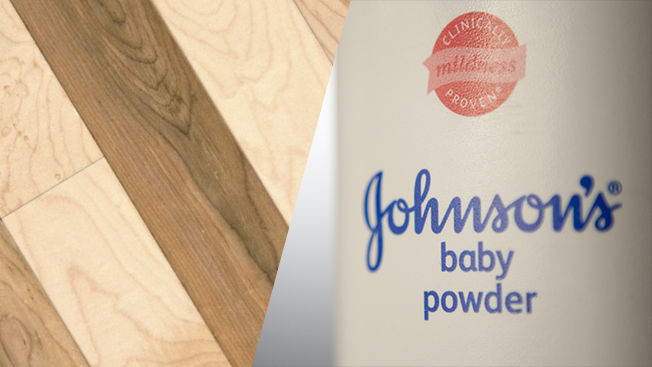Two brands found themselves in hot water recently after their products were linked to cancer, and their reactions offer lessons in crisis response management.
On Monday, Johnson & Johnson was ordered to pay $72 million by a Missouri state jury to the family of a woman whose death from ovarian cancer was linked to use of the company's talc-based baby powder. More than 1,200 lawsuits linking Johnson & Johnson's baby powder to cancer are still pending, the Associated Press reported.
On Wednesday, Johnson & Johnson tweeted a link to a blog post called The Facts About Talc Safety, which stated that that CDC, as well as two other studies, the Nurses' Health Study and the Women's Health Initiative Observational Cohort, found no relationship between talc and ovarian cancer. "The recent U.S. verdict goes against decades of sound science proving the safety of talc as a cosmetic ingredient in multiple products, and while we sympathize with the family of the plaintiff, we strongly disagree with the outcome," said Johnson & Johnson spokeswoman Carol Goodrich in a statement.
Johnson & Johnson took the wrong tone in its response, said Juda Engelmayer, senior vice president at 5W Public Relations. "Their reply is very corporate. It's not warm and open. Their consumers aren't lawyers, they're moms and dads holding their babies. They explain talc and the history of its use and safety, but it ignores the 800-pound gorilla in the room. One of the comments underneath it is, 'Why did you lose the case?' Their response doesn't instill consumer confidence. It just gives me the history of talc, which I could have gotten from Wikipedia."
"They clearly were unprepared for what to do if there was a big verdict," said James Haggerty, president and CEO of PRCG Haggerty. "The blog post feels like it's written by a combination of scientists and lawyers."
Most damning for Johnson & Johnson during the course of the trial was evidence of a 1997 internal memo suggesting it might be possible that talc was linked to ovarian cancer, Engelmayer added. "They said it's almost like denying that cigarettes cause cancer. They can't say now, 'We're confident that it [isn't dangerous] and we're going to keep fighting on that road.' The road already ended on that one."
Mark Weaver, founder of crisis communications firm Communications Counsel, said Johnson & Johnson's response likely was crafted by legal teams worried about liability in future court cases. "In the tug of war between the public relations people and the lawyers, the lawyers win. Smart corporations need to remember that there might be one judge in a court of law, but there's millions of judges in the court of public opinion."
Discount flooring provider Lumber Liquidators has been dealing with cancer claims for the past year, starting with an investigation by 60 Minutes in 2015 linking certain types of its flooring to cancer, after which the company halted sales of the flooring and offered customers free air quality tests. The company's CEO resigned in the wake of the news. On Feb. 18, the CDC released a report that said the flooring could cause six to 30 cancer cases per 100,000 people, up from estimates in a previous report stating that the flooring could cause two to nine cases per 100,000 people.
Lumber Liquidators responded to the most recent report by posting a letter to customers on its website stating that it no longer sells the flooring cited in the report, and again offering free air quality tests to customers who purchased the flooring, as well as contact information for its customer service department. The letter also states, "Your life is lived on our floors and we take that to heart. For over 20 years, you trusted our value. We value your trust."
(Both Lumber Liquidators and Johnson & Johnson declined to discuss their responses with Adweek beyond what they had posted publicly.)
Lumber Liquidators' conversational tone works better as a crisis response, Haggerty said. "It's much less scientific and lawyerly," he added. "Even though these are scientific issues, you need to communicate these issues effectively to people who aren't scientists and lawyers. They're doing and saying the right things that will frame these issues better in the public's mind."
In all cases like these, timeliness matters, Weaver said. "When a question is raised in the minds of consumers, smart brands address them quickly and effectively," he said. "When these crises happen, brands have to up their social media game and respond immediately online."








